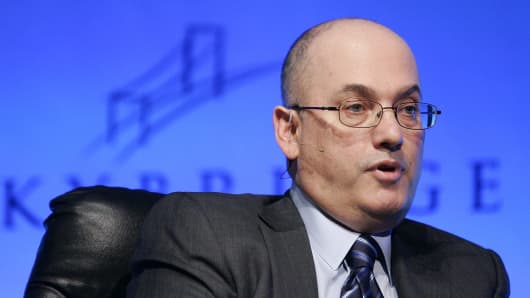So how did SAC victimize Weiland? Let's go to the Post:
Weiland now believes that he and other investors were played by Steve Cohen's SAC Capital Advisors when the hedge fund giant — acting on information from a former trader accused of insider trading — abruptly dumped its huge long position in Elan and Wyeth and started shorting both stocks
"They had information that I didn't have access to," said Weiland, a 53-year-old former consultant for Arthur Andersen. "It's totally a matter of seeing very wealthy people being able to game the system."
That's about all there is to Weiland's claim. Note that Weiland's loss would have been exactly the same — to the penny — if SAC Capital had never existed or wasn't trading in Elan shares. Which means that SAC's trading didn't cause any harm whatsoever to Weiland. What hurt his investment was the ineffectiveness of bapineuzumab.
Weiland's loss also could not have been avoided if SAC had some sort of duty to disclose the information that its trader, Matthew Martomo, had allegedly obtained from a doctor familiar with the clinical trials. Let's say that SAC gets the information about Elan on July 17 and immediately announces that the trials are going poorly. The stock would have dropped by 42 percent a few days earlier and Wieland's losses would have been exactly the same.
But, of course, SAC Capital had no such legal duty to disclose the information. It may have had — if the facts alleged by the Securities and Exchange Commission are true — a duty not to trade while in possession of the information. But that would not have prevented Weiland from suffering his losses.
Once again it appears all we have here is a case of an alleged crime with no victim.



